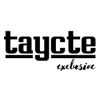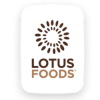Just as Greek yogurt sales were slowing, an aggressive ad campaign and responding litigation have brought the popular breakfast category back into the spotlight. The legal fracas has also raised important questions about aggressive marketing tactics and their place in food and beverage.
Last month, Chobani ran an advertising singling out certain ingredients contained in competitors’ products. The ingredients included potassium sorbate in General Mills' Yoplait Greek 100, which Chobani called a "toxic" chemical used "to kill bugs," and sucralose processed with "added chlorine" in Dannon Light & Fit Greek. Chobani cast these ingredients in a negative light compared to its "all-natural ingredients", and the campaign immediately drew fire from both companies.
Dannon filed a cease and desist letter, and General Mills sought and received a preliminary injunction preventing Chobani from making the claims until the case is settled. Chobani maintains that its mission is to "give more people more information while helping other food companies make better food," Peter McGuinness, chief marketing and brand officer at Chobani, said in a statement.
The conversation about how food is made in our country is just beginning. #NoBadStuff pic.twitter.com/Y2db9ESCXi
— Chobani (@Chobani) January 29, 2016
Food Dive reached out to the three companies for comment, all of which reiterated their official statements.
This type of aggressive comparative marketing isn't unheard of, but companies today tend to be less direct with their messaging in terms of targeting competitors. This is often because litigation is a likely outcome if another company perceives the ad campaign as going too far. Aggressive marketing claims without the scientific evidence to back them up is risky, but manufacturers can still approach direct comparative ad campaigns if they put in the legwork and prepare for the risks.
Not a common approach
In a reversal of the current controversy, in 2014, Yoplait ran a national taste test-based ad campaign that targeted Chobani, saying that, "People agree, Yoplait Greek blueberry tastes better than Chobani blueberry," Ad Age reported. And in 2011 and 2012, Dannon's Oikos Greek yogurt brand also called out Chobani, saying consumers chose Oikos over Chobani "two to one in a national taste test."
The rise of social media has contributed to keeping aggressive, comparative ads at a minimum. "There is a real risk in a social world is that you can prompt a backlash if you are too aggressive at attacking a competitor," Tim Calkins, a marketing professor at Northwestern University's Kellogg School of Management, told Ad Age in January 2014.
Targeted aggression
With its latest ad campaign, Chobani wasn't just aggressively targeting its competitors, Yoplait and Dannon, but also consumers and how they might respond to the ads' claims.
"This clearly is an effort to target the public's increased sensitivity in recent years to foreign agents, allergens, and pesticides, in food," said Elizabeth DeConti, shareholder in GrayRobinson Alcohol Beverage and Food Team, who advises food and beverage clients on issues pertaining to marketing practices and advertising law. "There’s been an increased awareness by the public over the past five to 10 years, […] and I really believe that this is a campaign designed to draw the attention of those consumers."

By calling out ingredients, Chobani hit the right consumer health trend notes. Clean labels have become an industry norm as companies, including General Mills, have gone to significant lengths to remove certain artificial ingredients from flagship products.
It's all about the evidence
At this point, General Mills has proven to a judge that irreparable harm could occur due to this campaign. But now the onus is on General Mills to prove that Chobani's ingredient claims are completely false, and it will have to meet the burden of proof to do that, DeConti said.
At the same time, all eyes will be on Chobani as to whether it can prove that the singled-out ingredients are in fact harmful. Chobani will need to have scientific evidence on its side if it ever wants this campaign to be revived.
"If it turns out that Chobani does not have that evidence, then what they did wrong is embark on a strong and possibly actionable campaign without suitable scientific evidence to back it up," said DeConti. "If (a manufacturer is) going to make a claim about ingredients in a competitor's product, those claims have to be accurate."
The costs of inaccuracy
Anyone in the food industry needs to be careful when developing campaigns with strong or direct claims against competitors, because potential litigation could be costly on multiple fronts, DeConti said.
Besides the obvious costs of any litigation like this, another major cost could be the loss of a sizable marketing investment.
"Ad campaigns are not inexpensive," said DeConti. "So what will happen now is unless Chobani can save (the ads) until the end of the case and win the case, ultimately they will lose whatever money they have spent developing these ad campaigns, which can be significant."
Both sides of the campaign also stand to face reputation costs, no matter the end result. Having been informed of these ingredients, health-conscious consumers may now avoid those Yoplait and Dannon brands, regardless of whether the court decides that the ingredients are indeed harmful. And consumers could be unsupportive of the aggressiveness of Chobani's campaign, whether or not Chobani's claims prove to be true.
Do attack ads ever work?
"There is a difference, for example, between saying, 'Yogurt Company B uses pesticides in their yogurt' versus 'Our yogurt is all natural — we, unlike some of our competitors, don't use any pesticides,' " said DeConti. "Those are two different things."
The following ad from the campaign does the latter — and Chobani has not had to take this one down per the preliminary injunction.
Whether Chobani's message — the promotion of its all-natural ingredients — has been lost amid resulting litigation will ultimately be up to consumers.
Now the question is, do attack ads ever work? DeConti says they can, "under the right circumstances."
"Aggressive marketing campaigns can be very successful, but with any type of comparative advertising or any advertising which directly mentions a competitor's product, extra care must be taken," said DeConti. "Because with any aggressive ad campaign, right or wrong, there is a possibility of litigation, and (manufacturers) should be prepared for that in advance."
As the industry becomes more crowded and competitive, marketing to consumers will get more aggressive, and if that means bringing competitors directly into the advertising, manufacturers will do so to send the right message to consumers.
This is also a key example of manufacturers putting pressure on other manufacturers to adapt to certain trends, in this case natural ingredients, rather than just consumers and public health advocates. The outcome of this case will demonstrate whether these tactics are effective among today's industry players, which will impact future marketing campaigns.





















